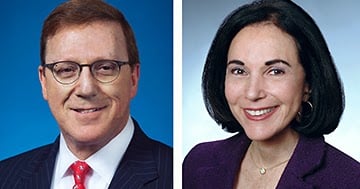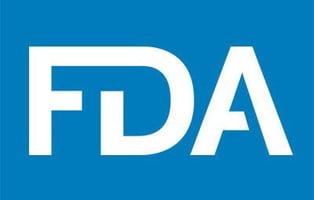Five years after it last broached the matter, the Food and Drug Administration (FDA) is again...
APA Supports ECT Device Reclassification; File Your Comments Now
 |
“[R]esearch consistently shows substantial rates of response and remission of treatment-resistant major depressive episodes to ECT, particularly when compared to response of treatment-resistant depression to additional trials of pharmacotherapy. In addition, analyses show rates of remission and response in individuals with bipolar depressive episodes that are generally comparable to that observed with major depressive disorder,” wrote APA President Renée Binder, M.D., and CEO and Medical Director Saul Levin, M.D., M.P.A. “These data provide further support for the proposed reclassification of ECT devices to class II for major depressive episodes.”
The leaders went on to recommend that the Class II designation be given for catatonia, mania in bipolar disorder, schizophrenia, and schizoaffective disorder and include ECT treatment for children and adolescents meeting the criteria for treatment resistance and in need of a potentially lifesaving intervention for the conditions previously indicated and for major depressive episodes associated with major depressive disorder or bipolar disorder.
“From a safety standpoint, as the FDA notes, ECT-related risks for these conditions are comparable for major depressive episodes. Evidence from peer-reviewed scientific literature, which meets the FDA definition of valid scientific evidence, supports the benefits of ECT in these conditions,” Binder and Levin wrote.
APA members are encouraged to submit a formal comment on the Federal Register site that explains why this reclassification could greatly improve access to safe, effective treatment for individuals with serious and persistent psychiatric disorders. A template letter has been prepared that provides talking points. The FDA must receive comments by March 28. As of 11:59 p.m. yesterday, the FDA had received 922 comments, and many of the comments reflect opposition to the proposal.
In 2009, the FDA also opened a public docket to receive comments regarding a similar reclassification proposal that closed in January 2010. At the time, the agency received over 3,000 submissions, with the majority of respondents (approximately 80 percent) opposing reclassification of ECT devices, and did not proceed with the reclassification.
“[I]t is so important for psychiatrists to take the lead in expressing their views in regard to the role that ECT plays in clinical practice and in the treatment of major depressive disorder,” Levin and Binder wrote in a blog post about the proposal. “For appropriate patients, ECT has been a lifesaver. It has given them an opportunity for a normal, functional life.”
For more information in Psychiatric News about prior efforts to reclassify ECT devices, see “FDA Advisory Panel Favors ECT in High-Risk Category.”





